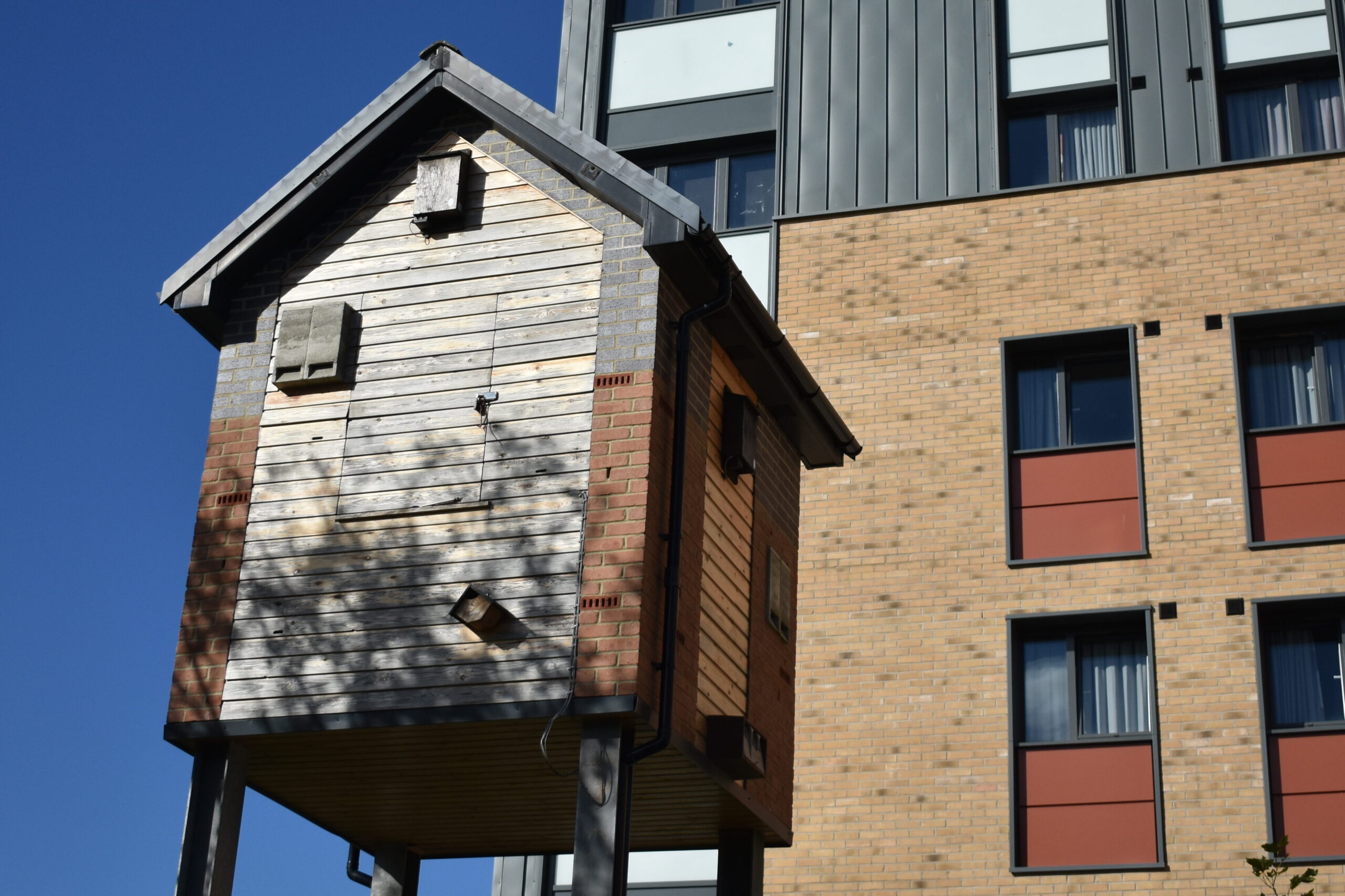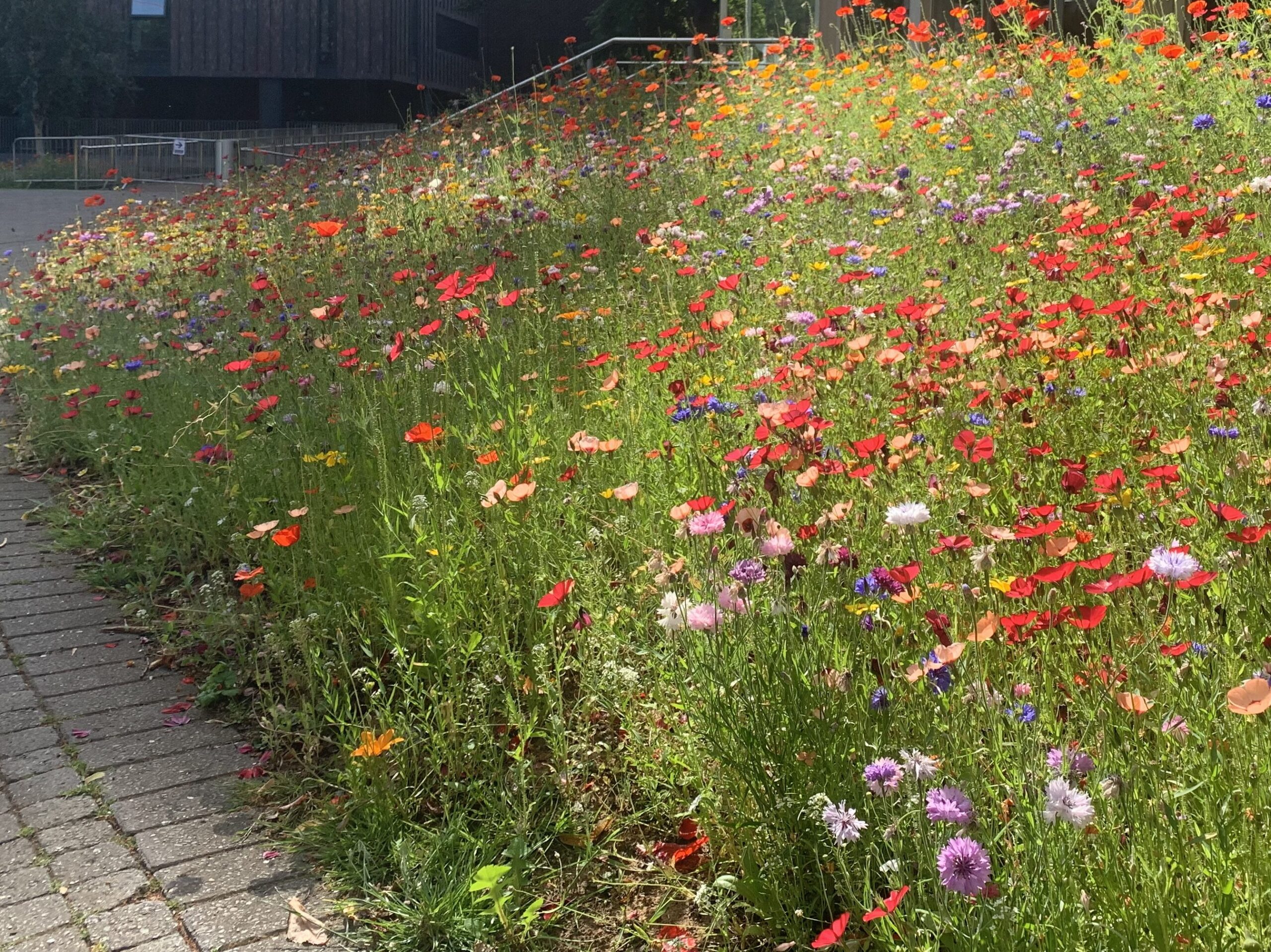Biodiversity loss is advancing at a rapid rate, the Living Planet Report (2020) outlines five prominent threats to biodiversity:
- Changes in land and sea use
- Species overexploitation
- Invasive species and disease
- Pollution
- Climate change
Newcastle University undertakes multiple actions to protect and enhance biodiversity on campus as part of its commitment to environmental sustainability. If you would like to learn more about Newcastle University’s commitment to biodiversity you can read our Biodiversity Policy.
Here are some of the actions that Newcastle University takes to enhance and protect biodiversity on campus:
The use of bat barns and huts
Multiple types of bats are currently listed by the International Union for the Conservation of Nature (IUCN) as Threatened with Imminent extinction or Near Threatened on the Red List.
Newcastle University currently has 2 bat barns and 39 bat boxes on campus. These are implemented as bats don’t mind built-up areas, if they have safe spaces for roosting. As our campus is a built-up area and is in the middle of Newcastle city centre, we have installed roosting spaces for local pipistrelle bats.

Wildflower planting
The national bee population is declining, and not only do these animals have intrinsic value in nature, but we need them as pollinators for our food.
We have planted up several unused areas of our estate as ‘pollinator gardens’, to provide sources of nectar and pollen as well as suitable nesting habitats. These spaces contain plants and flowers chosen by our own experts as pollinator friendly. We have a range of flowers with differing petal shapes (attracting a range of insects) and a succession of flowering times so insects have a nectar resource throughout the year.

Hedgehogs on campus
Unfortunately, hedgehogs were recently listed as a species ‘vulnerable to extinction’ on the International Union for the Conservation of Nature’s Red List for British Mammals.
Newcastle University is attempting to make life on campus more hedgehog friendly
Hedgehog surveying
In the last week of April, we carried out a hedgehog survey on campus. The surveying was important for understanding more about the biodiversity on and around campus, including finding out if we have hedgehogs on campus. The process included:
- A group of student volunteers went through survey training in March
- This group of volunteers deployed the tunnels on campus across our randomised locations.
- They also checked them every morning for footprints, along with a couple of members of the Sustainability Team
Sadly, we did not find any hedgehog footprints however we did find prints from squirrels, rodents and one cat.
To learn more about how to protect hedgehogs in your local area, have a read of our Hedgehog Friendly Campus post.
